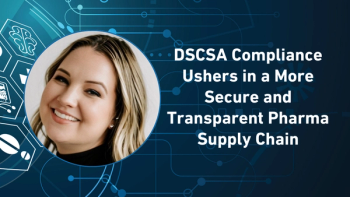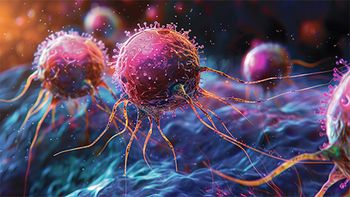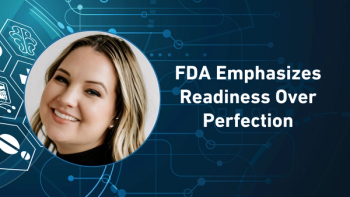
The Hidden Costs of Specialty Drug Access and Patient Loneliness
Administrative hurdles and emotional isolation are driving therapy abandonment and worsening outcomes—Megan Wetzel of CoverMyMeds and Jen Butler of Pleio say the solution lies in combining streamlined access with stronger human connection.
According to Megan Wetzel, VP, product, access & affordability, CoverMyMeds, specialty drugs continue to drive the majority of healthcare spending despite accounting for a small share of total prescriptions, a trend fueled by high prices, administrative burdens, and patient access barriers.
Prior authorization delays, claim denials, and affordability challenges have a cascading effect on adherence and outcomes. Nearly half of patients facing out-of-pocket costs exceeding $125 abandon therapy altogether, while 95% of providers report challenges initiating patients on specialty treatments due to the extensive administrative workload. These inefficiencies not only slow care delivery but also erode patient trust in providers and the broader healthcare system.
Beyond cost and administrative friction, emotional and behavioral factors, especially loneliness, play a critical role in adherence. As noted by Jen Butler, CCO at Pleio, researchers are beginning to connect emotional well-being to medication behavior, finding that loneliness can directly undermine treatment consistency and overall outcomes. In one study of over 2,000 chronically ill patients, those who reported feelings of loneliness were significantly more likely to experience poor adherence. Two-thirds said their diagnosis made them feel lonelier than before, highlighting how chronic illness often intensifies emotional isolation.
This growing awareness points to the need for a more holistic, patient-centered approach that goes beyond traditional access solutions. Addressing loneliness, enhancing emotional connection, and streamlining provider workflows are becoming integral to improving adherence and outcomes. Experts suggest that fostering trust and communication, both between patients and providers and within broader care ecosystems, will be key to reducing barriers and achieving meaningful health improvements in an increasingly complex specialty drug landscape.
A transcript of their conversation with PC can be found below.
PC: What key factors are driving the high spending on specialty drugs despite their low prescription volume? Meanwhile, how does patient loneliness directly undermine adherence and outcomes?
Wetzel: It's a huge issue. Barriers have a profound impact on providers, a huge impact on patients. For patients, every time you have a delay in a prior authorization or just a claim denial in general, that typically leads to a missed dose or you abandon therapy altogether, and worsened health outcomes when you don't take your therapy.
In general, anytime you experience some sort of barrier, you have that risk of not overcoming that barrier, which means that nearly 50% of patients when they get a barrier of affordability, abandon therapy. So 50% of patients, when they experience an out-of-pocket cost that was over $125 abandon that therapy altogether. So those types of Pas, claim denials, affordability barriers, really do impact patients in a very large way.
For providers, we saw that 95% reported difficulty starting patients on therapy. Especially when we're thinking about specialty therapies, it's just a lot of administration work. Multiple screens, they're clicking in on a lot of documentation. They're working on appeals—anytime that they don't go to get that claim acceptance right off the bat, it typically just delays them in getting a patient on therapy altogether.
This is really just an overall systematic strain. These issues are really just an overall fragmented system. Anytime that you experience kind of these delays and care delivery, it just erodes the trust that we see between patients and their care team as well. So patients are less likely to believe that they can get on these therapies, and they're less likely to trust their providers. Overall, it just slows everything down, and just creates friction in the overall system.
Butler: We've been doing this for 14 years and seeing improvement in medication adherence and loving what we're seeing, but kind of wondering, what's really driving this? What is it that the patients are actually responding to: the information or the connection?
Last spring, we were put in touch with Dr. Nobel, who is a Harvard Medical School faculty member, a public health expert, and author of Project UnLonely. Talking to him, we started making the connection of what's really driving adherence goes way beyond just tactical mechanical solutions and there's emotions at play. We fielded a study last April, where over 2,000 patients who had one chronic disease and also identified that they were struggling with loneliness, in some form or fashion, just feeling that perception of not having the connectivity that they desired.
It’s just important to say that loneliness isn't just about feeling isolated, because some people— as we've discovered during the pandemic back in those times—actually like being alone. So it's that perception of not having that connectiveness, and in that survey that came back, the results to understand the significance were really impactful. We saw that upon diagnosis, over two thirds of patients said that the diagnosis of their condition made them feel lonelier than they were previously.
Newsletter
Stay ahead in the life sciences industry with Pharmaceutical Commerce, the latest news, trends, and strategies in drug distribution, commercialization, and market access.





